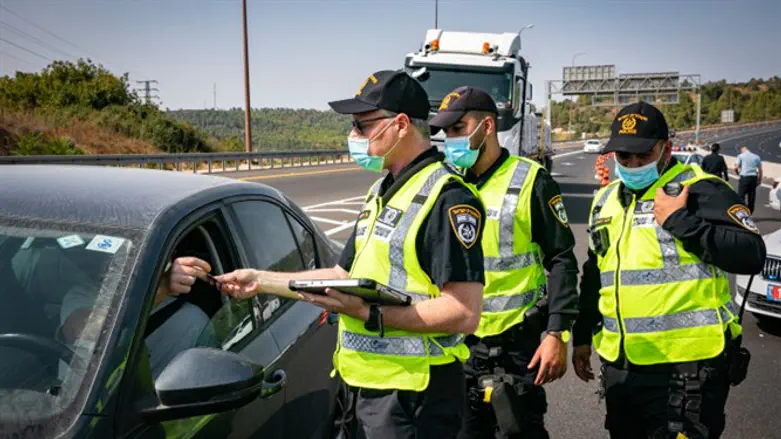
The Ministerial Committee on Legislation approved the compromise proposed by the committee's chairman, Minister Avi Nissenkorn, according to which the fines for coronavirus violations will be increased uniformly from NIS 5,000 to NIS 10,000.
The committee voted to approve the plan Tuesday evening, with Ministers Ministers Zeev Elkin (Likud) and Rabbi Yaakov Avitan (Shas) opposing.
During the discussion in the Ministerial Committee, Minister Avitan opposed any increase in fines, and especially attacked the increase in fines on educational institutions that operate in violation of regulations.
"Imposing large fines on an educational institution that is not an economic business is bad. Where will the institution bring the money from? It will be imposed on the parents, where will they get money from?", Minister Avitan wondered.
At the Cabinet meeting on Sunday and at the Coronavirus Cabinet meeting yesterday, it was determined that the fine for violating the ban on operating a place open to the public or a business will increase from NIS 5,000 to NIS 10,000, and that the fine for holding an event, party, conference, ceremony, festival, entertainment show or art show in violation of the regulations will increase from NIS 5,000 to NIS 20,000. After the haredi parties objected to this, it was determined today that the fine will be increased at a uniform rate to NIS 10,000.
Deputy Transportation Minister Uri Maklev attacked the decision, "The public is now in a difficult situation, businesses are collapsing and already today the fines are high by any standard. To make such a decision today, just when the public is struggling to get out of this crisis is out of line and we will oppose it. Unfortunately, the government communicates with its citizens through fines and not with information."
"Store owners and traders bring an outline and the government does not listen to them, educational institutions bring an outline and the government does not listen to them. The public is especially tired when many of the fines given by the police are in the 'gray' area of the law. The government must start to work on important matters that are not in dispute before imposing such draconian fines on the public," he added.
